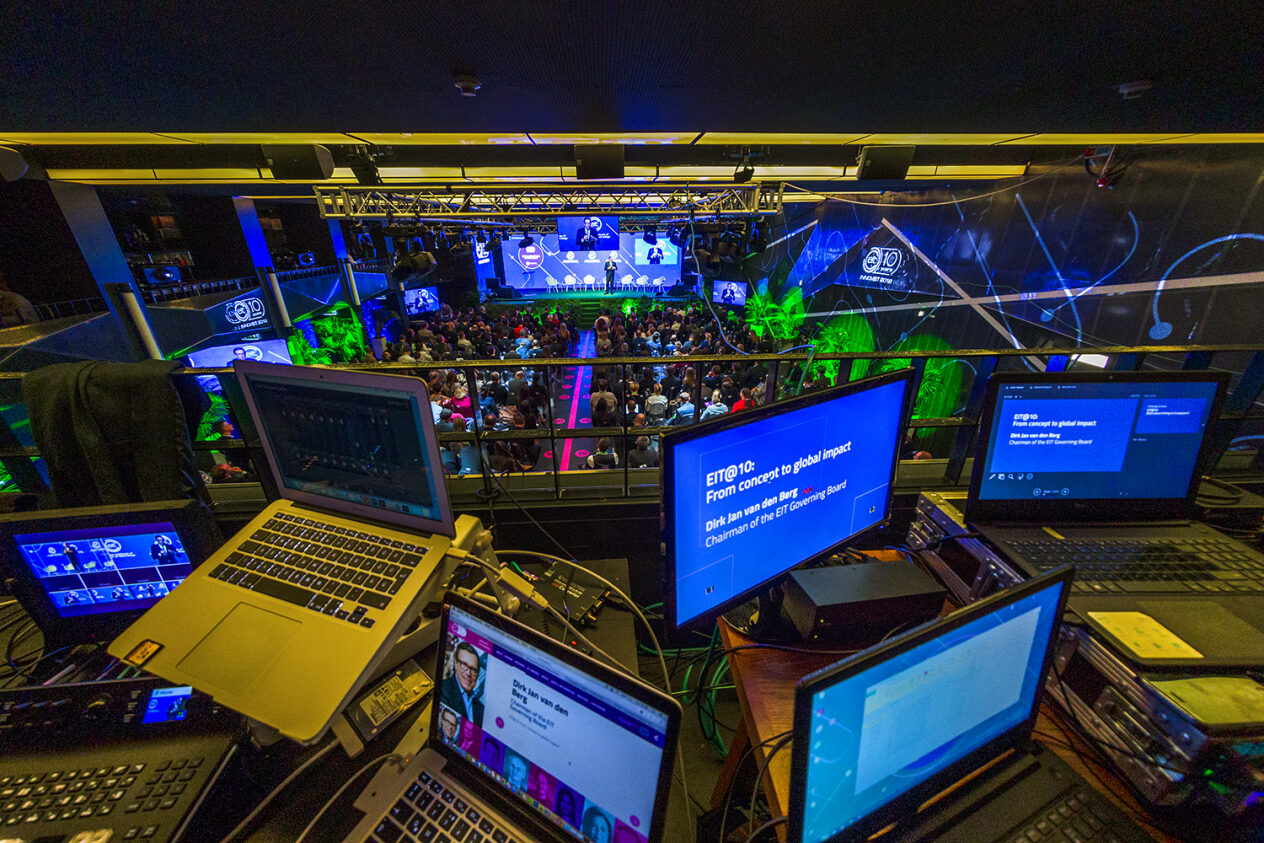EIT plays a unique role as an ‘ecosystem builder’ – Horizon2020 evaluation

The evaluation of Horizon2020, the EU Framework Programme for Research and Innovation 2014-2020 that was released on 29 January 2024, has recognised the European Institute of Innovation and Technology (EIT) for its ability to bring together stakeholders and create impactful and trust-based relationships around pressing societal goals.
The EIT’s Knowledge and Innovation Communities (KICs) were especially effective during the Horizon2020 period according to the Horizon2020 evaluation: 'The target number of active partners collaborating in the EIT KICs – representing the core indication of effectiveness in developing innovation ecosystems and integrating the knowledge triangle – was exceeded by a factor of two.’ And the 2023 H2020 study, Evaluation study of the European framework programmes for research and innovation for an innovative Europe, cited in the evaluation report, states that ‘The EIT KICs have a unique expertise in the market, and it is evident from the first wave KICs in the community that the time it takes to set up these complex networks of actors and the trust therein is worth the wait as these services are getting more and more traction.’ Their access to investors, industry, and experts made them valuable to the business creation landscape and puts them in a prime position to animate networks and bring the right people together at the right time.
EIT Community’s Horizon2020 accomplishments
The EIT Community advanced technological developments through a strong European network and an impressive roster of projects between 2014 and 2020. It has shown skill in attracting interest in their ecosystem through its ‘knowledge triangle’ approach bringing together partners from business, higher education and research. It is now the largest innovation ecosystem in Europe and the only innovation body with an on-the ground presence in every EU member state and beyond.
I am very pleased that EIT's unique model and approach to fostering innovation has now been validated. The EIT Community has truly worked hard to achieve the level of effectiveness, efficiency and performance recognised in the European Commission’s Horizon 2020 evaluation. I am confident that given the skilled learners and graduates, the impactful innovative projects, and the talented entrepreneurs we are currently funding and supporting, the EIT Community will continue to deliver highly impactful innovations for a greener, healthier, and more digital Europe.
Nektarios Tavernarakis, Chair of the EIT Governing Board
The EIT Community’s focus on societal goals from sustainable energy to healthy living to climate change allows the EIT Community to create venture communities based on a clear policy-backed footing. These were found to be particularly skilled at attracting big Venture Capital funds to their ecosystems.
With EUR 2.4 billion in funding during the Horizon 2020:
440 start-ups were created
3 862 start-ups and scale-ups were supported
1 501 new or improved products and services were produced
EUR 3.9 billion in external investment was raised by EIT Community powered ventures
2 153 business, research, and higher education organisations were integrated into the EIT Community, double KICs' original target of 1 200
Out of the over 4 000 companies created and supported by the EIT Community during H2020, seven have since gone on to find success as unicorns (start-ups worth over USD 1 billion): the Swedish Northvolt, the Norwegian FREYR, and the French Verkor (all EIT InnoEnergy), the Portuguese Sword Health and the French Owkin (both EIT Health), the German Lilium Aviation, the Swiss Climeworks, and the French Ÿnsect (all EIT Climate-KIC).
Through the EIT Regional Innovation Scheme, European countries whose innovation performance are ‘modest’ or ‘emerging’ according to the European Innovation Scoreboard benefitted from targeted support to reduce the innovation gap. These efforts resulted in157 marketed innovations, 73 newly-created start-ups, and 914 supported start-ups and scale-ups in these countries between 2014 and 2020. And the EIT Community managed to attract more than EUR 350 million in investment for KIC-supported start-ups and scale-ups in the RIS region.
More about Horizon 2020
H2020, the predecessor programme to Horizon Europe, was the EU's key funding programme for research and innovation. Its core mission was to drive economic growth and create jobs through research and innovation synergies, guiding science and industry towards tackling societal challenges like health emergencies and climate change. The EIT directly contributed to H2020 by:
Strengthening sustainable innovation ecosystems across Europe
Fostering the development of entrepreneurial and innovation skills in a lifelong learning perspective and support the entrepreneurial transformation of EU universities
Bringing new solutions to global societal challenges to the market
Creating synergies and added value within Horizon Europe
The evaluation was designed to look at the overall impact of Horizon2020 in Europe’s research and innovation sectors. Its body of evidence includes a combination of stakeholder consultations, interviews, and a survey.


 Share this page
Share this page


